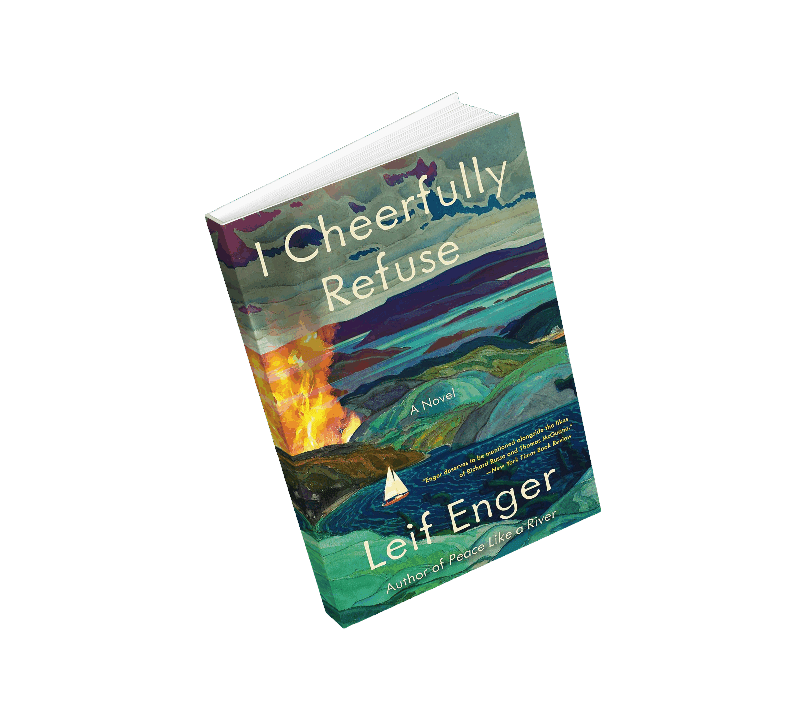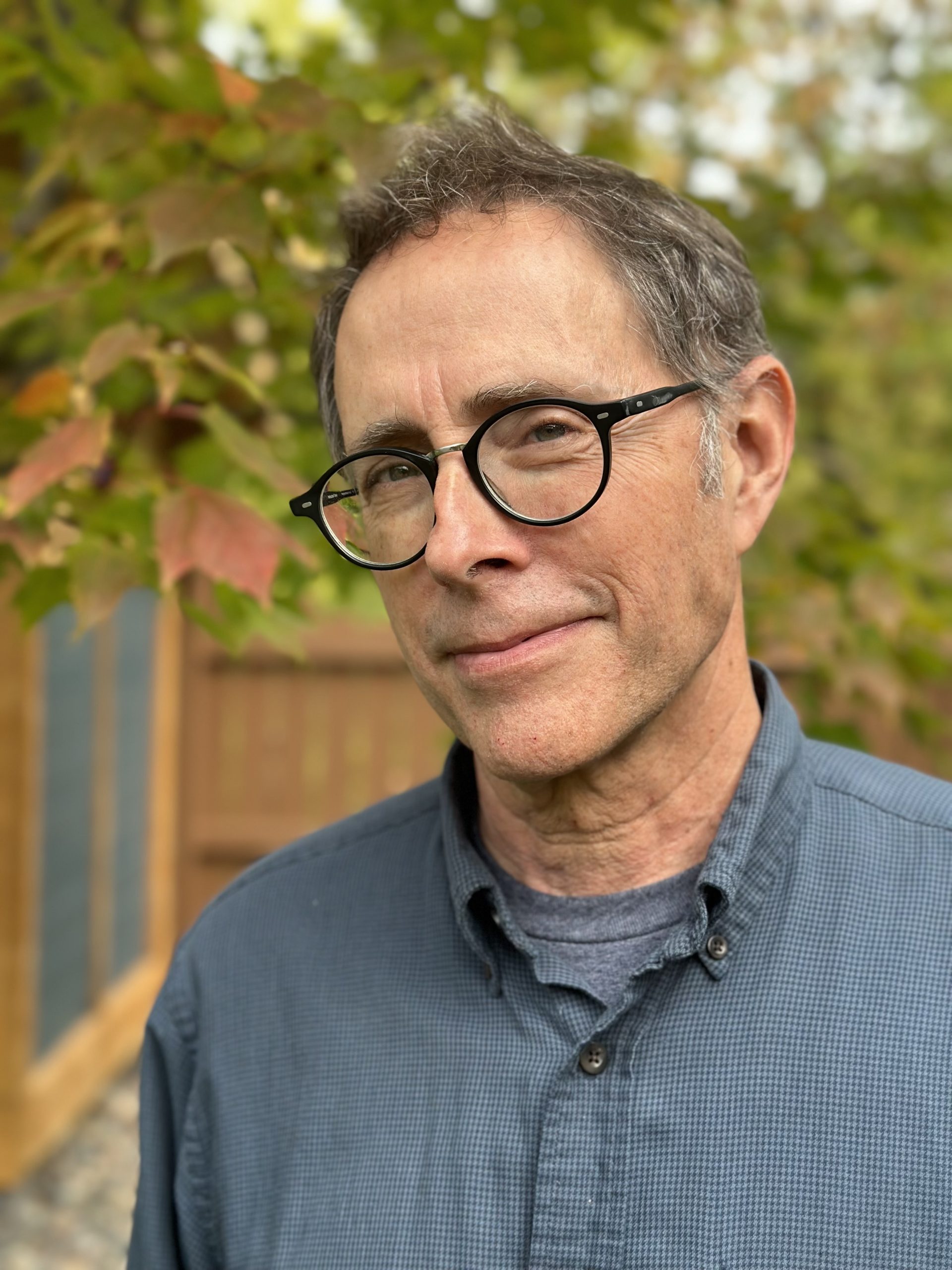— Leif Enger, I Cheerfully Refuse
Big Read Lakeshore 2025 Book
I Cheerfully Refuse
Leif Enger

“Better is here. Stay, and make it better.”
Book Summary
I Cheerfully Refuse by Leif Enger is a lyrical, post-apocalyptic novel that follows Rainy, a grieving widower and former musician, as he journeys across a fractured America in search of hope and redemption. After losing his wife, Rainy sails a homemade boat across the Great Lakes, encountering a world marred by economic collapse, authoritarian rule, and environmental decay. Despite the grim backdrop, the novel is infused with wonder, music, and moments of grace. At its heart, it’s a meditation on kindness, resilience, and the power of art and human connection to illuminate even the darkest times.
About The Author
Leif Enger

Leif Enger is an American novelist celebrated for his lyrical prose and deeply human storytelling. Born in 1961 in Sauk Centre, Minnesota, and raised in Osakis, he grew up in a family of educators. Enger attended Moorhead State University (now Minnesota State University Moorhead), where he majored in English and mass communication. It was there he met his wife, Robin Reed; the couple later settled on a 56-acre farm near Aitkin, Minnesota, where they raised their two sons.
Before turning to fiction, Enger spent nearly two decades as a reporter and producer for Minnesota Public Radio. In the early 1990s, he co-authored a series of mystery novels with his brother, Lin, under the pen name L.L. Enger. His solo debut, Peace Like a River (2001), became a national bestseller and was named one of the Year’s Best Books by Time Magazine and the Los Angeles Times. He followed this success with So Brave, Young, and Handsome (2008), which also garnered critical acclaim. His third novel, Virgil Wander (2018), was longlisted for the Carnegie Medal for Excellence in Fiction.
In 2018, Enger and his wife moved to Duluth, Minnesota, where the proximity to Lake Superior has deeply influenced his writing. He notes that the lake’s moods often mirror his own, affecting his productivity and the tone of his work. This connection is evident in his latest novel, I Cheerfully Refuse (2024), a post-apocalyptic tale set along the shores of Lake Superior, exploring themes of resilience and hope in the face of societal collapse.
Reviews
“Mr. Enger would seem an unlikely contributor to the expanding shelf of postapocalyptic fiction. His three earlier books, most successfully the bestselling debut “Peace Like a River,” deal in gentle, nostalgic Americana, not plagues or locusts. And his new work’s title hints at a warmth and playfulness that doesn’t usually characterize these stories. Yet “I Cheerfully Refuse” is darker than anything Mr. Enger has written to date. The novel conjures a queasy future that cannot extinguish the best in us. As readable as anything he has written, it refreshingly concerns itself less with the miraculous than with what is right before our eyes, even when we want to look away.”
Michael O’Donnell
‘I Cheerfully Refuse’ Review: Great Lakes Odyssey
Discussion Questions
- How does the novel portray nature as a nurturing force, a destructive one, or both? What commentary might Enger be making about humanity’s relationship with the natural world?
- Rainy embarks on a quest after suffering personal loss. In what ways does his journey mirror classic hero narratives, and how might it diverge from them?
- The novel explores what it means to be “good” or “bad.” How do the characters embody these concepts, and does Enger offer any answers or leave it ambiguous?
- The novel shares it’s title with a rare manuscript within the story. What might the significance of this be, and how does it reflect themes of resistance and hope?
- The drug Willow represents a societal surrender to despair. How do characters respond to this pervasive hopelessness, and what acts of defiance or hope stand out?
- In a world where reading seems to be declining, what is the significance of characters like Lark, who value books and knowledge? How does this emphasis on literacy comment on contemporary society?
- Throughout the novel, certain characters cling to “old world” values—literature, memory, art. Why do you think Enger centers these things in a post-collapse world? What message might he be sending about what’s worth preserving?
- While many choose escapism (like the drug Willow), others pursue knowledge and truth despite pain. How does the novel contrast these paths, and what does it say about the cost and value of awareness?
